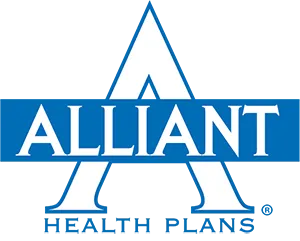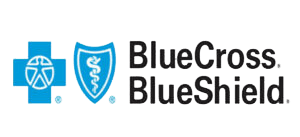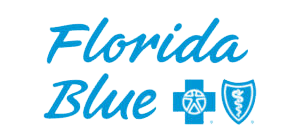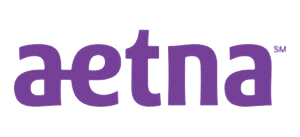Intensive Outpatient Program in Rome, GA
Fairland Recovery Center’s intensive outpatient program in Rome, GA, offers help for people dealing with addiction. Intensive Outpatient Programs (IOPs) give support while letting patients live at home. These programs blend therapy and life skills training.
IOPs in Rome, Georgia, give people a way to work on recovery without putting life on hold. They teach coping methods and offer group support. Patients can keep jobs or go to school while getting treatment.
Fairland Recovery Center offers IOPs for different needs. Some focus on drugs or alcohol, while others help with mental health, too. The goal is to build a strong base for long-term recovery. IOPs are a step between full-time rehab and outpatient care.
Understanding Intensive Outpatient Programs (IOP)
Intensive Outpatient Programs offer structured treatment while allowing patients to maintain daily routines. They bridge the gap between inpatient care and traditional outpatient therapy, providing a flexible yet comprehensive approach to recovery.
The level of care gives patients a chance to get help while still living at home. IOPs usually run for a few hours daily, several days a week.
Patients attend therapy sessions and learn coping skills. They also take part in group activities. The goal is to help people manage their mental health or substance use issues.
IOPs can treat many conditions, including depression, anxiety, and addiction. The programs aim to teach patients how to handle daily life challenges.
IOP vs. Other Treatment Programs
IOPs differ from other treatment options in key ways. They offer more support than regular outpatient care but less than inpatient treatment.
Inpatient care requires patients to live at a facility, while outpatient care involves weekly visits to a therapist. IOPs fall in between these two.
Here’s a quick comparison:
- Inpatient: 24/7 care, live-in treatment
- IOP: 3-5 days per week, 3-4 hours per day
- Standard Outpatient: 1-2 hours per week
IOPs allow patients to practice new skills in real-life settings. This can help with long-term recovery. They also cost less than inpatient care and offer more flexibility.
Core Components of Intensive Outpatient Programs
IOPs have several key parts that make them work. These help patients learn and grow during treatment.
- Group Therapy: Patients share experiences and learn from others.
- Individual Counseling: One-on-one sessions with a therapist.
- Skill-Building Workshops: Learn coping strategies and life skills.
- Medication Management: If needed, our therapists can adjust and monitor medications.
- Family Therapy: Involves loved ones in the recovery process.
These parts work together to give patients a full range of support. During therapy sessions at Fairland Recovery Center, we merge everybody.
We find that typically, when you put executives, young adults, older adults, and people from all walks of life together, they get along because they share that commonality of struggling with addiction and can put those differences aside.
Determining Candidacy for IOP Programs in Rome, GA
Not everyone is a good candidate for an IOP. Our clinicians consider several factors to determine whether it’s a good fit.
Good candidates for IOP often:
- Have a stable living situation
- Don’t need 24/7 medical care
- Can travel to treatment regularly
- Are motivated to recover
People with severe symptoms or those at risk of harm may need more intense behavioral health care than outpatient treatment provides. A full assessment helps determine the best level of treatment.
The Role of Therapy in IOP
Therapy forms the core of Intensive Outpatient Programs (IOPs) in Rome, GA. It helps patients develop coping skills, manage symptoms, and work towards recovery. Different types of therapy address various aspects of mental healthcare and addiction.
Individual Therapy and CBT
Individual therapy in IOPs provides personalized support. Modalities such as Cognitive Behavioral Therapy (CBT) are often used. It helps patients identify negative thought patterns and behaviors.
CBT teaches strategies to change these patterns. Patients learn to:
- Recognize triggers
- Manage stress
- Improve problem-solving skills
Therapists tailor CBT techniques to each patient’s needs. This approach is effective for treating depression, anxiety, and substance use disorders.
Benefits of Group Therapy
Group therapy is a key component of IOPs. It offers peer support and shared learning experiences.
Patients benefit from:
- Hearing others’ perspectives
- Practicing social skills
- Reducing feelings of isolation
Group sessions cover various topics. These may include:
- Relapse prevention
- Stress management
- Healthy coping mechanisms
Patients learn from each other’s experiences. They gain insights and develop empathy. Group therapy helps build a support network crucial for long-term recovery.
Family Therapy and Its Importance
Family therapy involves patients and their loved ones. It addresses relationship dynamics and communication patterns.
The goals of family therapy include:
- Improving family communication
- Educating families about mental health or addiction
- Creating a supportive home environment
Family members learn how to support the patient’s recovery and work on their own challenges related to the patient’s condition.
This therapy helps rebuild trust and strengthen family bonds. It’s essential for creating a stable support system outside of treatment.
Integrating DBT Skills
Dialectical Behavior Therapy (DBT) skills are often incorporated into IOPs. DBT focuses on:
- Mindfulness
- Distress tolerance
- Emotion regulation
- Interpersonal effectiveness
Patients learn to manage intense emotions and improve relationships.
DBT skills help with the following:
- Reducing self-destructive behaviors
- Enhancing self-awareness
- Developing healthy coping strategies
These skills are practiced in both individual and group settings. They provide practical tools for daily life challenges.
Support Structures in Recovery
Building a solid support network is crucial for long-term recovery. Peer mentors, 12-step meetings, and self-esteem-building activities provide essential tools and connections to help maintain sobriety.
The Value of Peer Mentors
Peer mentors play a crucial role in the recovery journey. These individuals have walked the path of recovery themselves and can offer guidance based on personal experience.
Peer mentors provide:
- Emotional support during difficult times
- Practical advice for handling triggers and cravings
- Accountability to help stay on track with recovery goals
Peer mentors can help clients build connections and learn from others who understand their struggles.
Navigating 12-Step Meetings
12-step meetings like Alcoholics Anonymous and Narcotics Anonymous are a cornerstone of our recovery programs. These meetings offer:
- A structured approach to maintaining sobriety
- Regular support from a community of peers
- Opportunities to share experiences and learn from others
Newcomers are encouraged to try different groups to find the best fit. Many find that regular attendance helps prevent relapse.
Building Self-Esteem in Recovery
Rebuilding self-esteem is an integral part of the recovery process. Low self-worth can contribute to substance abuse and make it harder to maintain sobriety.
Some ways to boost self-esteem in recovery include:
- Setting and achieving small, manageable goals
- Practicing self-care and developing healthy habits
- Engaging in volunteer work or helping others in recovery
Fariland Recovery Center’s drug rehab program often includes activities designed to improve self-image and confidence. These activities can help individuals feel more capable of maintaining their long-term recovery. They also help reduce stress and promote overall well-being. These activities complement traditional therapies like counseling and medication management.
At our treatment facility, clients learn to use these tools in their daily lives. This helps them maintain sobriety and manage mental health symptoms long-term. We often engage in yoga, meditation, physical fitness, and outside excursions.
Addiction and Co-Occurring Disorders
Treating addiction often involves addressing mental health issues that occur alongside substance use disorders. Many people struggle with both addiction and mental health challenges at the same time.
Addressing Dual Diagnosis
Dual diagnosis refers to having both a substance use disorder and a mental health condition. We often treat clients with dual diagnoses. These programs recognize that addiction and mental health are closely linked.
Treatment plans for dual-diagnosis clients are tailored to address both issues simultaneously, which increases the chances of successful recovery.
Therapists work with clients to identify how each condition affects the other.
Medications may be used to manage symptoms of mental health disorders. At the same time, counseling helps clients develop coping skills for both addiction and mental health challenges.
Mental Health Disorders and Addiction
Common mental health disorders that occur with addiction include:
- Depression
- Anxiety
- Bipolar disorder
- Post-traumatic stress disorder (PTSD)
- Attention-deficit/hyperactivity disorder (ADHD)
These conditions can make it harder to overcome addiction. They may lead to self-medication with drugs or alcohol. Our treatment center in Rome offers specialized care for these co-occurring disorders.
Therapy sessions focus on managing symptoms of both addiction and mental health issues.
Patients learn to recognize triggers and develop healthy coping mechanisms to stray away from dependency. Group therapy allows individuals to connect with others facing similar challenges.
Trauma-Informed Care
Trauma often plays a significant role in addiction and mental health disorders. Many people with substance use disorders have experienced traumatic events in their lives.
Trauma-informed care recognizes the impact of these experiences on a person’s health and behavior. It aims to create a safe, supportive environment for healing.
In our outpatient programs, staff are trained to recognize signs of trauma. They use techniques that avoid re-traumatizing patients during treatment.
Therapies like Eye Movement Desensitization and Reprocessing (EMDR) may be used to process traumatic memories. Patients learn coping skills to manage trauma-related symptoms without turning to substances.
Finding the Right IOP in Rome
When choosing an IOP, consider factors like:
- Treatment Approach: Evaluate whether the program offers evidence-based treatments like Cognitive Behavioral Therapy (CBT), Dialectical Behavior Therapy (DBT), or other specialized approaches.
- Staff Credentials: Review the qualifications of the treatment team, including therapists, psychiatrists, and support staff.
- Treatment Philosophy: Understand the program’s approach to recovery and ensure it aligns with your values and goals.
- Session Timing: Look for programs offering morning, afternoon, or evening sessions to accommodate work or school.
- Insurance Verification: Check if the program is in-network with your insurance provider.
- Out-of-Pocket Costs: Understand deductibles, copays, and any additional expenses.
- Payment Plans: Inquire about financing options or sliding scale fees if needed.
- Physical Location: Consider travel time and transportation options to and from the facility.
- Facility Features: Consider the treatment space’s environment, amenities, and overall comfort.
Offering Community Support and Resources
Fairland Recovery Center specializes in providing comprehensive care that addresses both addiction and co-occurring mental health conditions. Our Rome IOP program stands out for its transformative approach to recovery, offering specialized treatment that helps individuals work through both substance use disorders and underlying mental health challenges.
Call us at 770-797-7652 to get started with comprehensive treatment and overall wellness.
Fairland Recovery Center Programs
Find Help Now
We accept most major insurances


